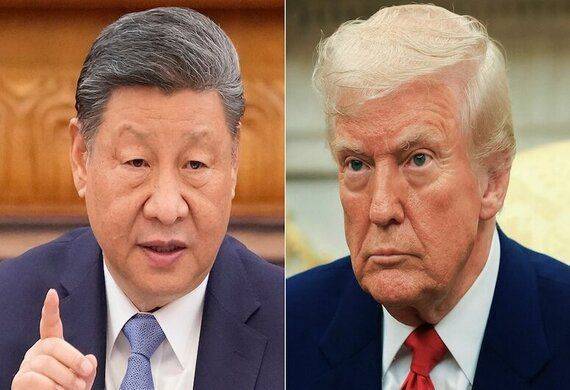US-China Trade War Escalates as Trump Unveils New Tactic to Pressure Xi Jinping
By Global Leaders Insights Team | Apr 19, 2025

The Trump administration in the United States has announced the imposition of new port fees on Chinese ships, potentially escalating trade tensions between the two countries. According to the plan released by the US Trade Representative (USTR), this tax will apply to ships owned, operated, or built by Chinese nationals.
The tax will be increased gradually, beginning on October 14, 2025 and ending in April 2028, according to the plan. Initially, this tax will be $50 per tonne, rising to $140 per tonne. Furthermore, the tax per container may increase from $120 to $250.
China's Foreign Ministry criticized
According to SCMP, China's Foreign Ministry spokesman Lin Jian criticized the decision, claiming that it would disrupt the global supply chain, raise costs, and increase the burden of inflation on American consumers. He predicted that this policy would fail to revive America's shipbuilding industry. According to USTR's plan, each ship will be charged up to five times per year. The tax will be levied at the port where the ship first enters the United States, preventing it from bypassing smaller ports.
Major shipping companies in China
Experts predict that this policy will have the greatest impact on major Chinese shipping companies like COSCO and OOCL. According to Lars Jensen, CEO of shipping consultancy Vespucci Maritime, the Ocean Alliance, which includes COSCO, OOCL, Evergreen, and CMA CGM, may need to modify their network. He estimates that the tax per port call for some large Chinese container ships could be more than $10 million. On the other hand, the tax on Chinese-built ships could reach $4 million per port call.
Discounts on US-shipped orders
The United States is also preparing to levy taxes on LNG-powered vehicles and foreign-made vehicle transporters. Foreign car carriers will have to pay a $150 tax per unit. This will go into effect once the exemption period expires. However, the USTR has provided relief in some cases. Small ships (less than 4,000 TEU) and short-distance voyages (less than 2,000 nautical miles) are exempt. Aside from that, if an operator orders an American ship of the same size, it will be exempt from tax on Chinese ships.
USTR proposes a 100% tariff
The USTR has also proposed up to 100% tariffs on ship-to-shore cranes and cargo handling equipment imported from China. This is a step toward making the US maritime industry self-sufficient. Global concerns are growing about the new policy's impact. Clarkson Research has lowered its global shipbuilding forecast for 2025 by 30%. Investors have become cautious as a result of the uncertainty surrounding US trade policies.
WTO warned
The World Trade Organization (WTO) has warned that rising tariffs and policy uncertainty may cause global merchandise trade to fall by 0.2% in 2025, significantly lower than the previously projected 2.7% growth rate. Exports to North America are expected to decline by 12.6%, while imports will fall by 9.6%.
According to USTR's report, the United States accounts for only 0.1% of global shipbuilding, while China alone builds more ships than the rest of the world combined. According to 2024 data, China received 70% of new shipbuilding orders, South Korea 17%, and Japan 5%.
.jpg)



